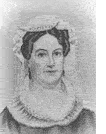












CALL FOR PAPERS Social Economics: A Paradigm for a Global Society Eleventh World Congress of Social Economics Albertville, France June 8-11, 2004
The Association for Social Economics has scheduled its Eleventh World Congress of Social Economics for June 8-11, 2004, at Hotel Millon in Albertville, France. The general theme will be "Social Economics: A Paradigm for a Global Society." It is not necessary to be a member of the Association to participate in the Eleventh World Congress. We hope that non-members will be interested in joining the Association. Social economists think about economic affairs in ways substantially different than mainstream economists. Social economists view the economy as a social, cultural, and political institution. Social economics questions the traditional assumptions of homo economicus, rational economic man, and recognizes the interconnectedness of people's life and work-both paid and unpaid. The Association for Social Economics (www.socialeconomics.org) was founded in 1941 to challenge the emerging dominant paradigm of neoclassical economics, to broaden the scope and methodology of economics, to encourage the pursuit of economic justice, and to inspire research and analysis on policies to eradicate poverty, unemployment, hunger, inequality, and promote an economy that values human beings and allows them to live with dignity.
Proposals for the World Congress may include: (1) individual or coauthored papers; (2) entire sessions of 4 papers; (3) roundtables of 4-5 persons on a particular topic; and (4) pedagogical sessions on teaching in the social economics tradition. The editors of the two journals of the Association-Review of Social Economy and Forum for Social Economics-are especially interested in papers suitable for publication. There will be no formal discussant assigned to papers/sessions. Instead, we encourage participation and discussion among the panelists and participants. We encourage historical, theoretical, empirical, and policy papers. We are particularly interested in research that will help to develop a social economics paradigm. What assumptions would a social economist make in theory building? What methodological tools would be used? What is the relationship between social economics and other heterodox economics approaches, including economic sociology? How can social economics guide policymaking? teaching? Topics for papers/sessions could include:
- economic justice
- economic sociology
- values & ethics in economics
- alternative development strategies
- economic thought & methodology
- health & welfare
- inequality, poverty, & discrimination
- economics of war & peace
- gender, race-ethnicity, & class
- supra-national institutions & trading blocs
- labor standards in a global economy
- EU social policy
The Program Committee prefers to receive proposals by e-mail. In your proposal, include:
* Author/Panelist name(s), postal address, telephone, fax, e-mail address * Paper, Panel, or Session title * A 100 word (maximum) abstract of the Paper, Panel, or entire Session.
Please send these materials, preferably by November 1, 2003, but no later than January 8, 2004, to each member of the Program Committee:
Betsy Jane Clary, College of Charleston, USA claryj@cofc.edu
Wilfred Dolfsma, Erasmus University, The Netherlands w.dolfsma@fbk.eur.nl
Deborah M. Figart, Richard Stockton College, USA figartd@stockton.edu
Phillip A. O'Hara, Curtin University, Australia philohara2@hotmail.com
Following the World Congress, the Program Committee plans to work with selected paper authors to edit a thematic book volume to be published in 2005.

